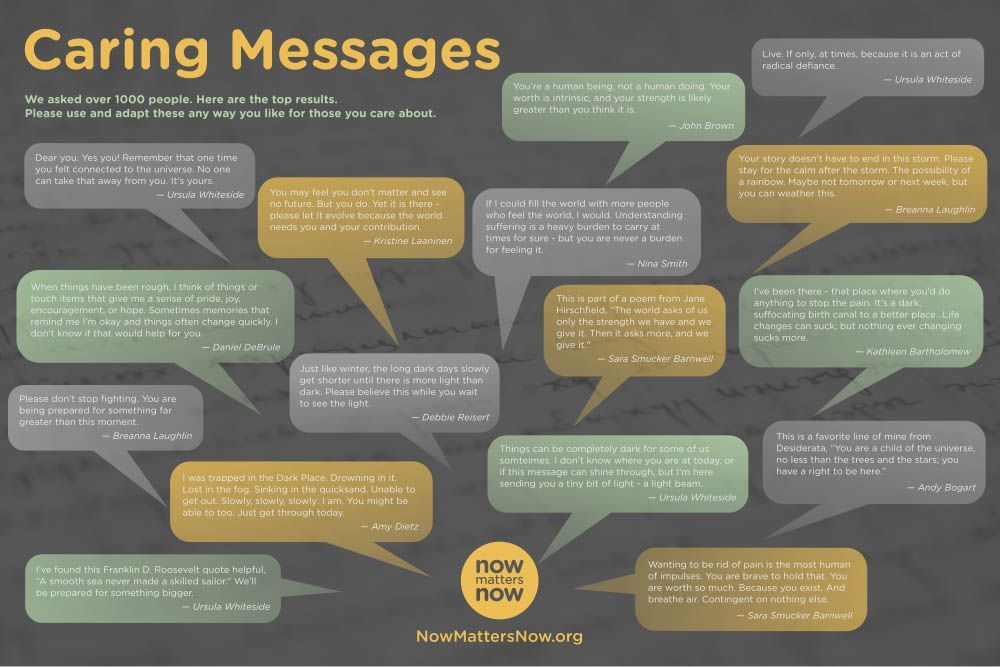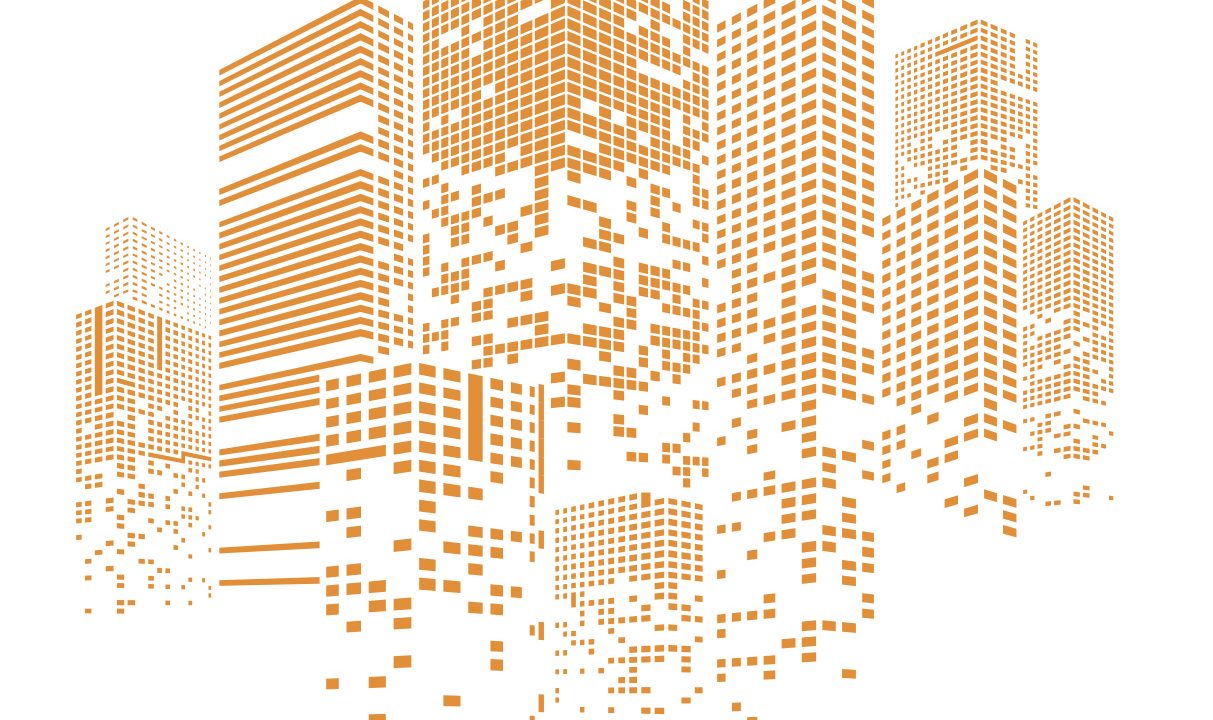The growing worry and fear resulting from the unprecedented uncertainty of the COVID-19 pandemic continues to swing an emotional wrecking ball. Hardest hit has been the population living with existing anxiety, depression, substance use disorders and other mental health conditions. COVID-19 has exacerbated the stress and anxiety of people who experience thoughts of suicide. Fortunately, the nonprofit Now Matters Now exists for these reasons.
The Executive Director of Now Matters Now, Dr. Ursula Whiteside, is a clinical psychologist in private practice and on the clinical faculty at the University of Washington in Seattle. She is a researcher of suicide mentality and prevention techniques. Dr. Whiteside readily shares that she experiences the struggles of suicidal thoughts.
Dr. Whiteside says that the purpose of Now Matters Now is to help gain control of the painful emotions and thoughts that drive people to harm themselves. Dr. Whiteside has boldly proclaimed the benefits of expanding the spread of caring messages as an upstream suicide prevention strategy. Whiteside hopes that caring messages can become an integral part of construction safety, health and well-being culture.
Cal Beyer: Why do caring messages matter so much in promoting mental well-being and suicide prevention?
Dr. Whiteside: We don’t know for sure, but we suspect it works for a number of reasons. They can work both as prevention and intervention for suicide, but also for depression, anxiety, loneliness and substance use. What is meant by prevention is that someone doesn’t have to be in pain to benefit from regular caring messages. In fact, we are all “at risk” for these negative experiences, just like we are “at risk” for positive ones. With caring messages, we hope to tip that balance in the right direction. We’d likely be a more connected, happier and healthier society if we regularly sent—and received—caring messages.
Claire Burnett: Why do caring messages help decrease anxiety and reduce prevent suicide?
Dr. Whiteside: There are various ideas for why caring messages help. One reason is their simplicity. Because of their nature, they don’t require much work to receive. Another reason is the cumulative effect of caring messages. It is said that it takes someone seven positive interactions to recover from a negative one. The more positive messages someone receives, the better! It’s like making deposits into the piggy bank. The surplus is there if you ever need to tap it.
Ways to Deliver Caring Messages
- social media messaging services;
- texting;
- email;
- “snail mail” notes and cards; and
- handwritten notes left at workstations, in lunchboxes, inside a vehicle or attached to a keyring, or any private place the recipient will see it.
Beyer: Why is the length of caring messages so short?
Dr. Whiteside: We live busy lifestyles. There is so much that is asking for and demanding our attention. The brevity allows someone to take the time to take it in, rather than avoiding it if it seems too long to digest. Sometimes, in order to get our point across, the fewer words the better. In this regard, less truly is more.
But also, if our lives have gotten really quiet because we’ve checked out, this is important, too. Brief caring message are not overwhelming. And maybe more than short, it is important that they are non-demanding, that they aren’t asking anything of anyone. They are expressions of care that can spark hope.
Burnett: Are there additional reasons why caring messages are so effective at reaching people in need?
Dr. Whiteside: I get excited talking about the effectiveness of caring messages. Some of the other benefits include:
- Caring messages deliver a direct dose of positivity. Unconditional positive regard works for pets, kids and as it turns out, adults, too.
- If someone is socially disconnected, receiving caring messages creates less time lapse between periods of disconnection and makes it harder for someone to become totally checked-out.
- When we aren’t feeling so great, we often aren’t our best selves to those around us. We might be having very few positive interactions. Receiving caring messages breaks up that negative experience and provides hope.
- I suspect that sending caring messages, when done with intention and while letting go of needing to get a response, can be just as helpful as getting them.
Beyer: What is the right frequency for sending those in need caring messages?
Dr. Whiteside: They are best delivered over time—and not just once. Research has studied delivery at different intervals, but if someone is going through a really hard time, start with more frequent message, at least every two weeks for a month or two and then move to less frequently, such as every one or two months by a year later.
Beyer: Is the effectiveness of caring messages influenced by who sends them? In other words, are caring messages best sent by mental health therapists, family members or other loved ones; or, are caring messages sent by representatives from an employer or work crew effective, too?
Dr. Whiteside: We don’t know yet for sure yet, but we do know that they don’t have to from people you know really well to be helpful. When it is apparent that someone took an extra moment to think of you as an individual, that can make a difference. My research team says that a personal note, touch or signature makes a difference. It seems like what is important is receiving caring messages more than who sent them.
Burnett: Are you aware of any large employers using the caring messages in suicide prevention?
Dr. Whiteside: Large healthcare organizations are using them with the patients that they serve. There are some good examples on the Zero Suicide initiative website. It would be great if there were peer to peer support programs led coworkers that could support this work and make it a bit more personal. With all the other suicide prevention efforts occurring in the construction industry, I challenge industry leaders to adopt caring messages as another key step in promoting well-being among all workers.
Ideas for Caring Messages in Construction
Caring Messages are not a replacement for Employee Assistance Programs, crisis hotlines and/or regular ongoing behavioral health counseling. Caring messages work to reinforce the caring culture of a company (and family) and make employees feel respected, valued, affirmed and that they matter. Representative examples of who can send caring messages include:
- supervisor sending a positive text to an employee they are concerned about;
- HR sending a follow-up care note to a person they’ve helped navigate the Employee Assistance Program;
- tradesperson in the field sending a text to a crewmate they know is struggling with an issue;
- family member placing a note on the bathroom mirror or “hiding” a note in a lunchbox or inside the cupholder of a vehicle; and
- coworkers in the office leaving encouraging notes at someone’s desk or workstation.
Caring messages can become a powerful tool in the suicide prevention toolkit. Caring messages are private and personalized messages of hope that one person sends to another with “no strings attached.” Effective caring messages are sent with regularity to express positive thoughts about the recipient to let them know you care for them and are thinking of them. Caring messages are an upstream suicide prevention strategy that can promote self-esteem and mental well-being.






